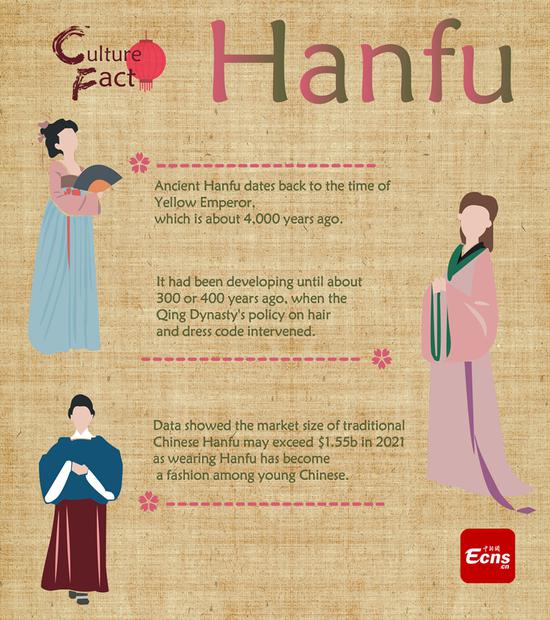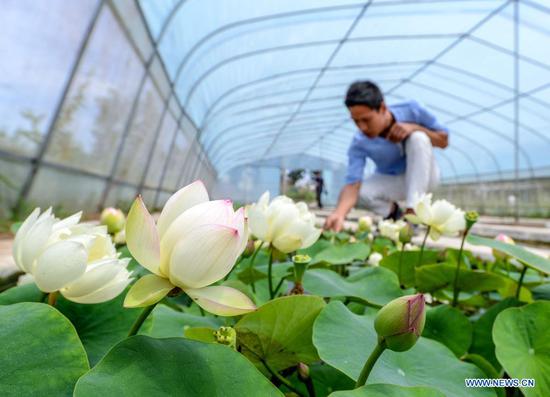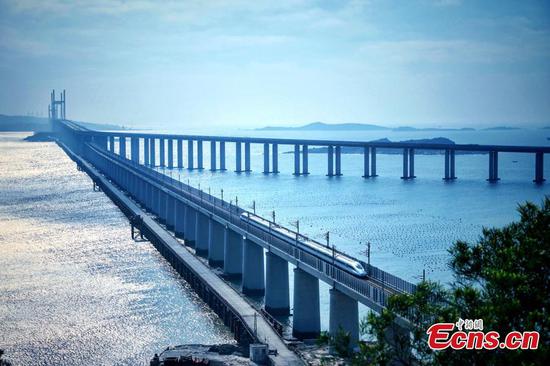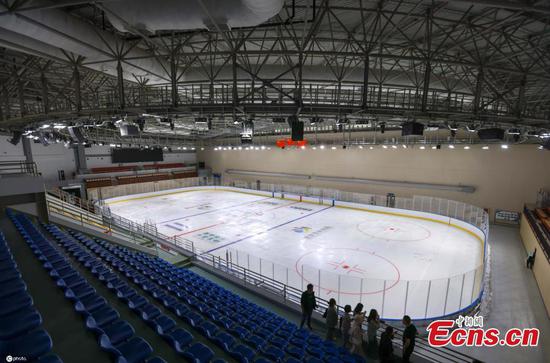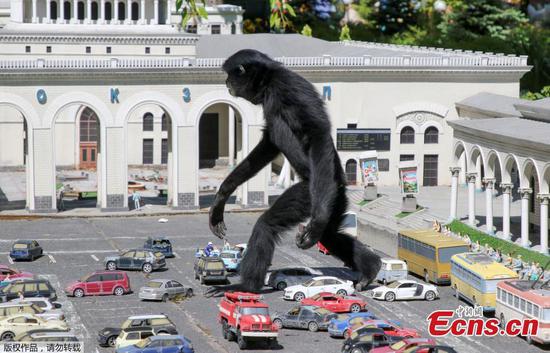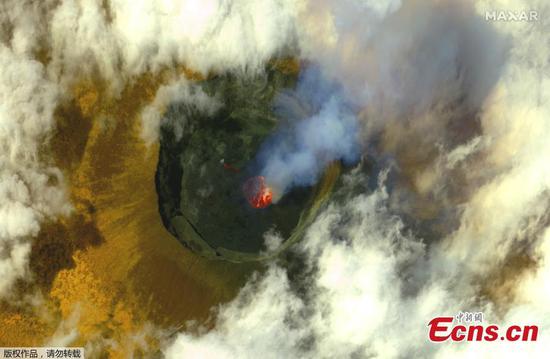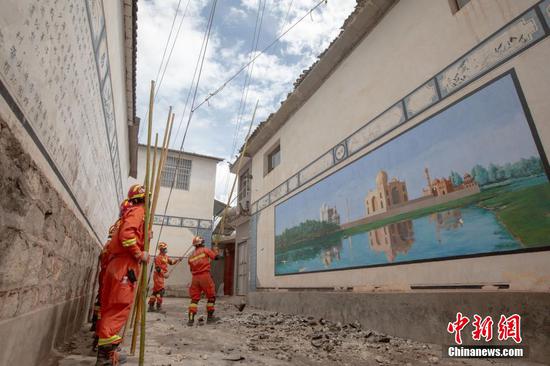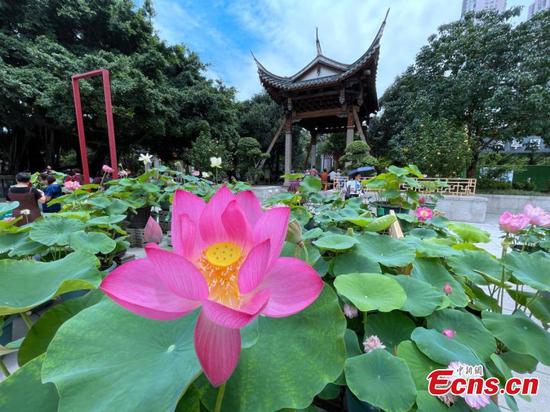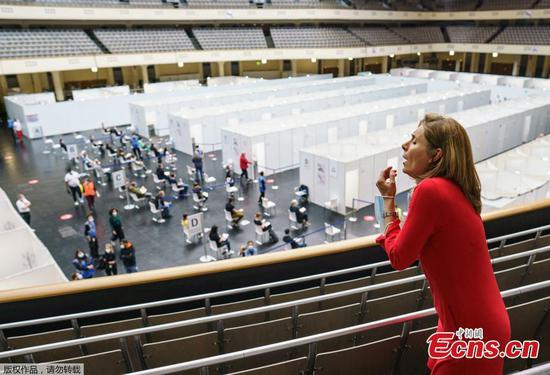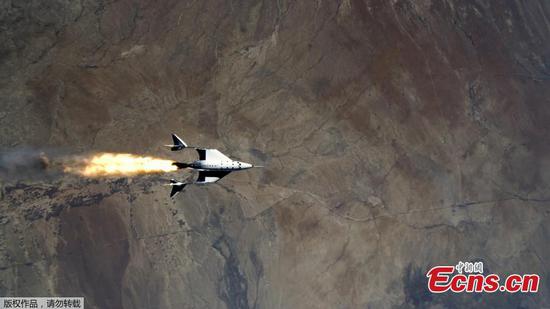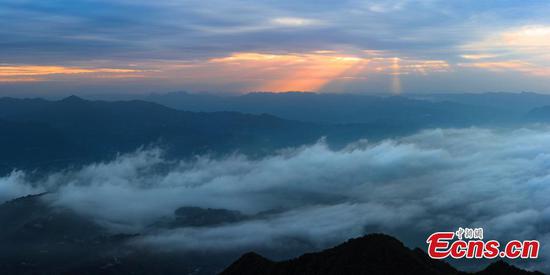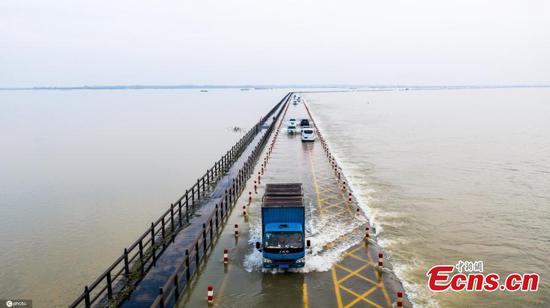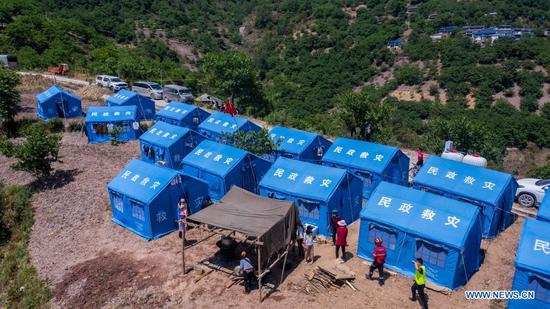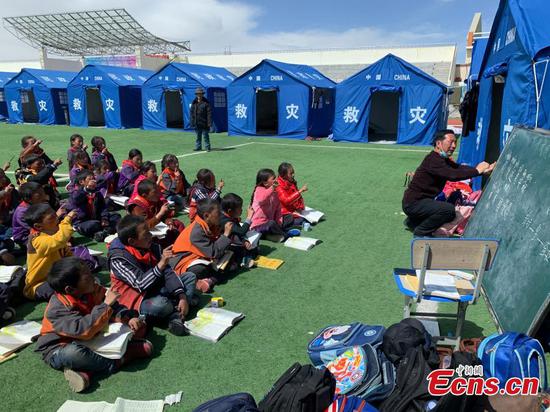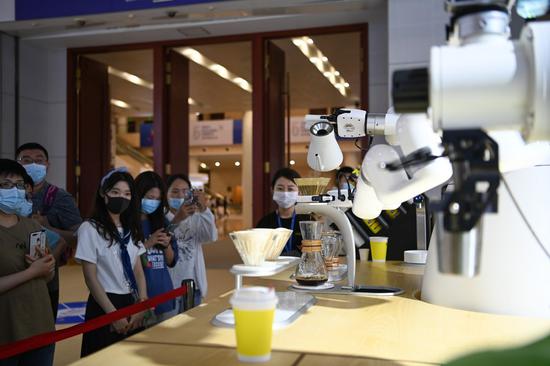
Visitors gather during Shanghai Disneyland's fifth anniversary celebration, dubbed the "Year of Magical Surprises", on April 8. (GAO ERQIANG/CHINA DAILY)
Shanghai Disneyland, the first theme park of Walt Disney Co to operate in the Chinese mainland, is contributing to the socioeconomic development of Shanghai and the Yangtze River Delta region, a recent report said.
Fixed income investment of Shanghai Disneyland fueled the city's economic output by 0.13 percent between June 2016-when the park first opened its gates-and June 2019, according to a report by the China Tourism Academy.
Over the same time frame, consumption resulting from visits to the theme park pushed up Shanghai's GDP by 0.21 percent, while spending made by Disneyland visitors in Shanghai contributed to 4.09 percent of the city's tourism growth.
The study-Shanghai Disney Resort Happiness Travel Trend Report-polled 3 million Disneyland guests over the past five years. Its aim was to delve into the latest travel trends in the theme park sector and shed light on where the industry is headed in the coming years, said Dai Bin, president of the academy.
"We hope that research like this will help further develop these industries here in Shanghai, across the Yangtze River Delta and throughout China," said Joe Schott, president and general manager of Shanghai Disney Resort at the report's launch last week.
The facility and its related services have generated obvious spillover effects. The report found the park to have created more than 10,000 direct job opportunities and facilitated indirect employment for some 60,000.
The hospitality sector stands to be one major beneficiary. According to the survey, over 95 percent of Disneyland guests said they would choose accommodations in Shanghai or neighboring areas, while 83.7 percent said they would choose affiliated hotels in or near the theme park or adjacent four-to-five-star hotels.
"Disneyland is one of the best embodiments of the tourism and culture industries, both of which are prioritized as China's pillar industries," said He Jianming, a professor at the Shanghai University of Finance and Economics. "It's also the growth pole of the new type of urbanization guiding China's next phase of growth."
Apart from economic gains, the report also pointed to eight trends based on the park's operations over the past five years. The park has become a must-see venue for kids and even those aged over 65.
Customer loyalty is gaining momentum. Between 2017 and 2019-which was prior to the COVID-19 pandemic-Shanghai Disneyland saw the number of repeat visitors jump 50 percent. Annual pass-holders visited the site 10 times on average.
Dai said people's growing propensity to embrace immersive experiences was a major factor.
"We have witnessed this shifting pattern of guests, from waiting in queues just to take as many rides as possible, to becoming more willing to watch spectacles, interact with Disneyland cast members and enjoy delicacies in the park," Dai added.
"A combination of rationality, technology and culture creates quality and cultivates people's appreciation of a beautiful experience," he said.
The SUFE's He is confident about the segment's longer-term growth. He cited a study from the World Tourism Organization (UNWTO) saying that economies enjoying 3 percent or above GDP growth can expect the number of international tourist arrivals to surge 1.3 times.
"Compared with the likes of Tokyo and Singapore (both of which have theme parks), Shanghai still has plenty of room of growth in accepting international travelers," He said. "The impact of the pandemic is limited."
Shanghai will host a Legoland Theme Park scheduled to open in 2024. Universal Beijing Resort is set to be operational this year, according to earlier media reports.










